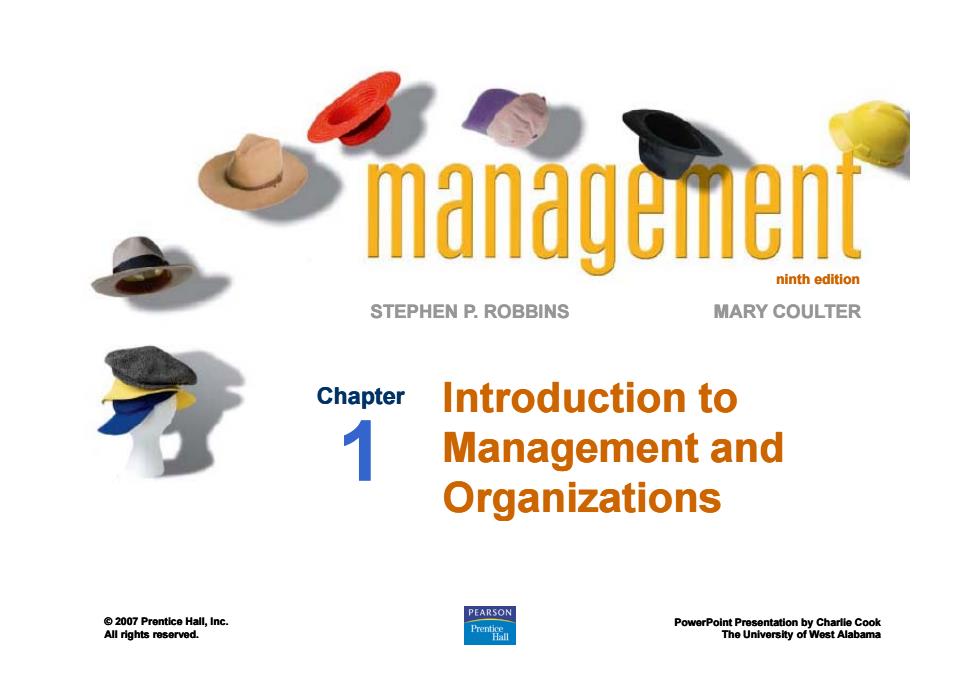
management ninth edition STEPHEN P.ROBBINS MARY COULTER Chapter Introduction to Management and Organizations Rag7erameh,1nc PEARSON PowopolaBUang义GttAeSoat
ninth edition STEPHEN P. ROBBINS STEPHEN P. ROBBINS MARY COULTER MARY COULTER Chapter Introduction to 1 Management and Organizations PowerPoint Presentation by Charlie Cook The University of West Alabama © 2007 Prentice Hall, Inc. All rights reserved
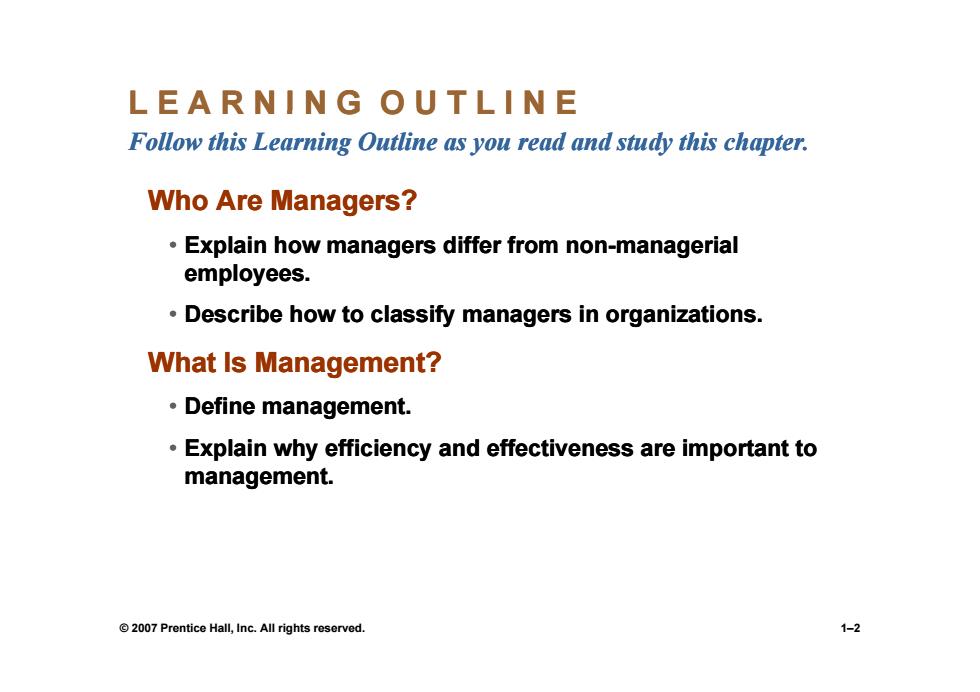
LEARNING OUTLINE Follow this Learning Outline as you read and study this chapter. Who Are Managers? Explain how managers differ from non-managerial employees. Describe how to classify managers in organizations. What Is Management? ·Define management. Explain why efficiency and effectiveness are important to management. 2007 Prentice Hall,Inc.All rights reserved. 1-2
LEARNING OUTLINE L E A R N I N G O U T L I N E Follow this Learning Outline as you read and study this chapter. Who Are Managers? • Explain how managers differ from non Explain how managers differ from non-managerial managerial employees. • Describe how to classify managers in organizations. What Is Management? • Define management. • Explain why efficiency and effectiveness are important to management. © 2007 Prentice Hall, Inc. All rights reserved. 1–2
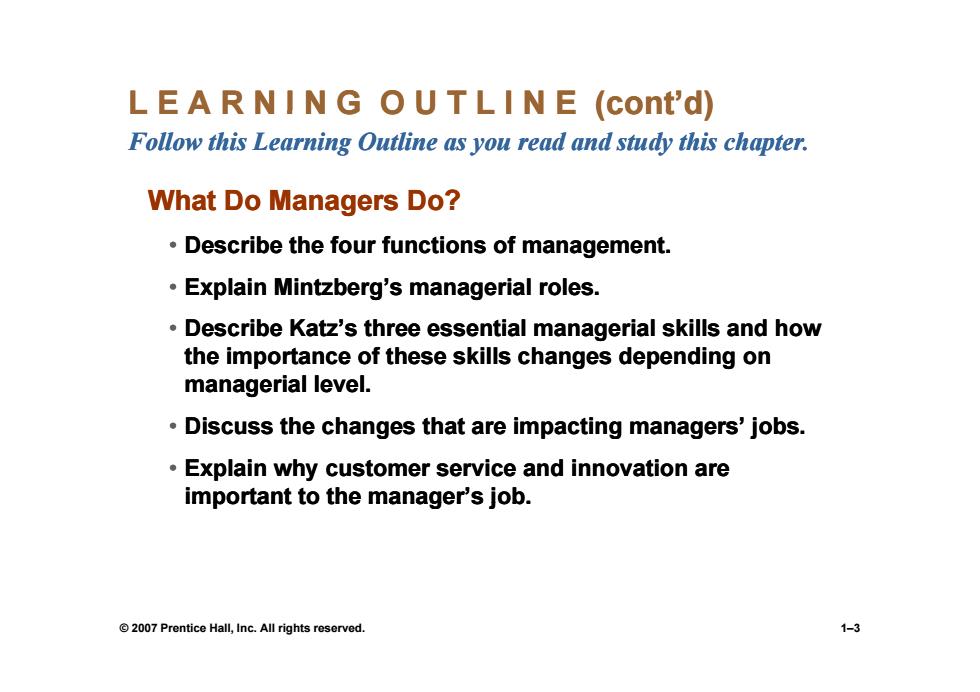
LEARNING OUTLINE (cont'd) Follow this Learning Outline as you read and study this chapter. What Do Managers Do? Describe the four functions of management. Explain Mintzberg's managerial roles. Describe Katz's three essential managerial skills and how the importance of these skills changes depending on managerial level. Discuss the changes that are impacting managers'jobs. Explain why customer service and innovation are important to the manager's job. 2007 Prentice Hall,Inc.All rights reserved. 1-3
L E A R N I N G O U T L I N E (cont L E A R N I N G O U T L I N E (cont d) (cont d) ’ Follow this Learning Outline as you read and study this chapter. What Do Managers Do? • Describe the four functions of management. • Explain Mintzberg’s managerial roles. • Describe Katz’s three essential managerial skills and how the importance of these skills changes depending on managerial level. • Discuss the changes that are impacting managers’ jobs Discuss Discuss the changes changes that are impacting impacting managers’ managers’ jobs. • Explain why customer service and innovation are important important to the manager important to the manager s manager s’ job. © 2007 Prentice Hall, Inc. All rights reserved. 1–3
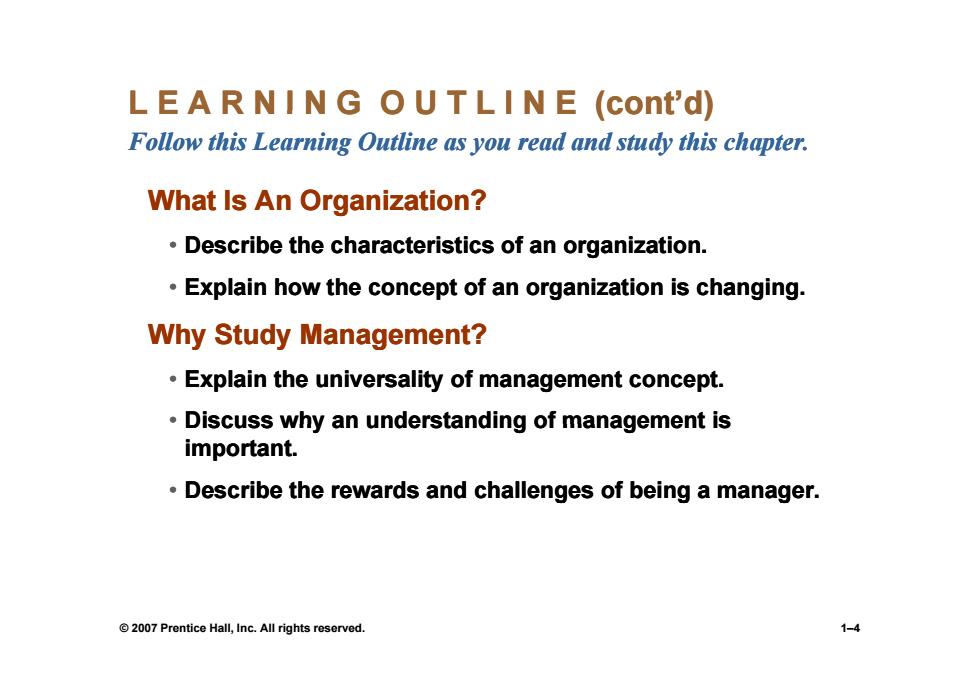
LEARNING OUTLINE (cont'd) Follow this Learning Outline as you read and study this chapter. What Is An Organization? Describe the characteristics of an organization. Explain how the concept of an organization is changing Why Study Management? Explain the universality of management concept. Discuss why an understanding of management is important. Describe the rewards and challenges of being a manager. 2007 Prentice Hall,Inc.All rights reserved. 1-4
L E A R N I N G O U T L I N E (cont L E A R N I N G O U T L I N E (cont d) (cont d) ’ Follow this Learning Outline as you read and study this chapter. What Is An Organization? • Describe the characteristics of an organization. • Explain how the concept of an organization is changing. Wh yy g Stud y Mana gement? • Explain the universality of management concept. • Discuss why an understanding of management is Discuss Discuss why an understanding understanding of management management is important. • Describe the rewards and challen Describe the rewards and challen g gg es of bein es of bein g a mana ger. © 2007 Prentice Hall, Inc. All rights reserved. 1–4
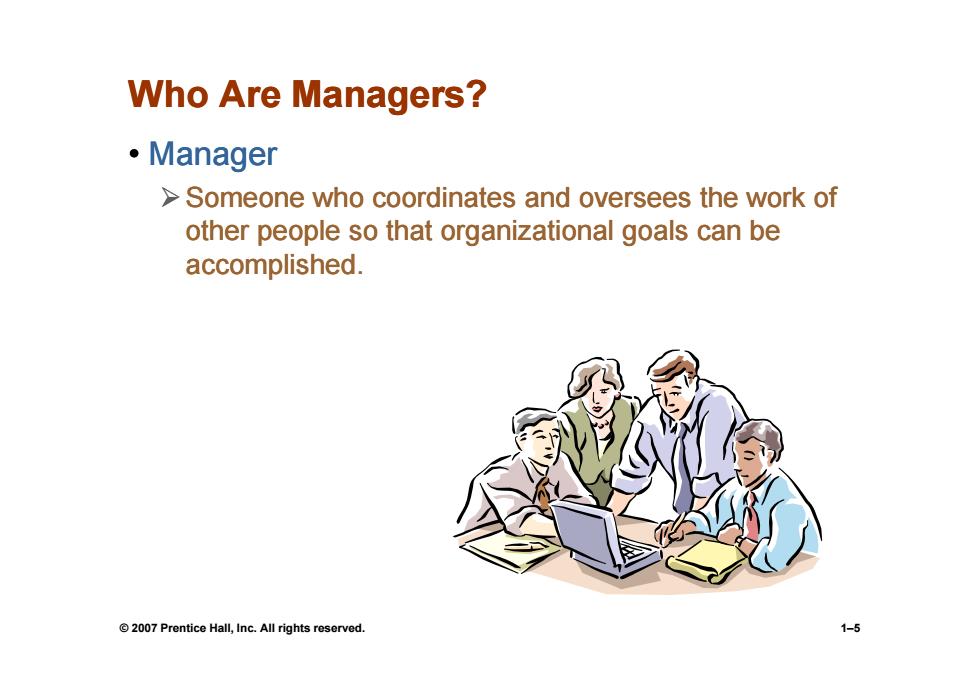
Who Are Managers? 。Manager >Someone who coordinates and oversees the work of other people so that organizational goals can be accomplished. 2007 Prentice Hall,Inc.All rights reserved. 1-5
Who Are Managers? • Manager ¾S h di t d th k f Someone w omeone who coordinates and oversees oversees the work of other people so that organizational goals can be accomplished. © 2007 Prentice Hall, Inc. All rights reserved. 1–5